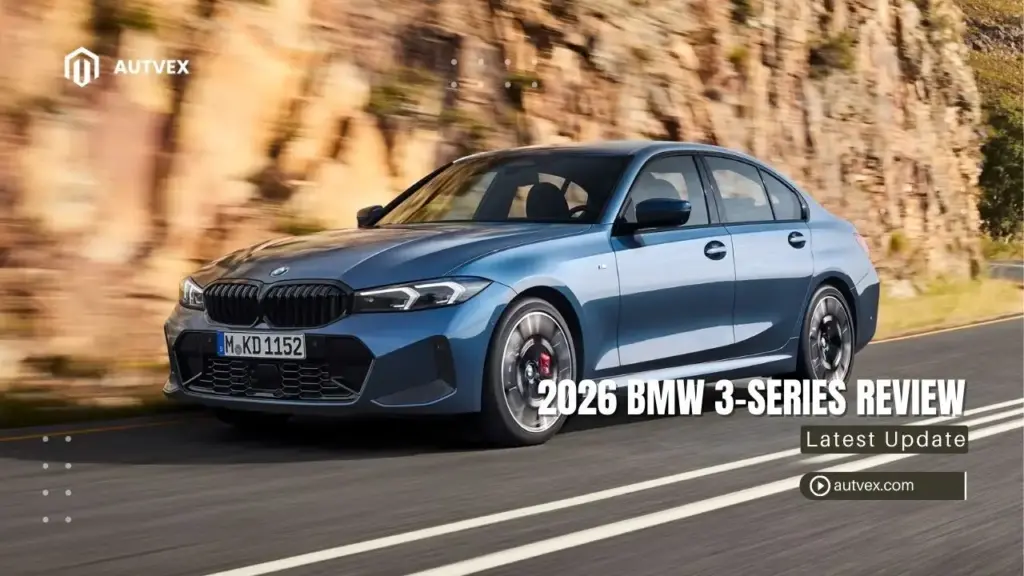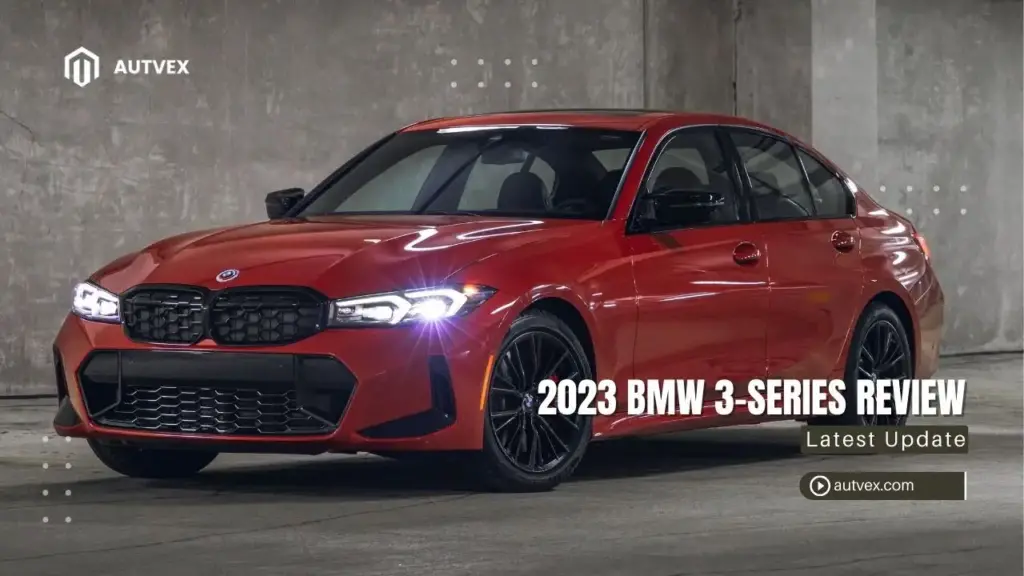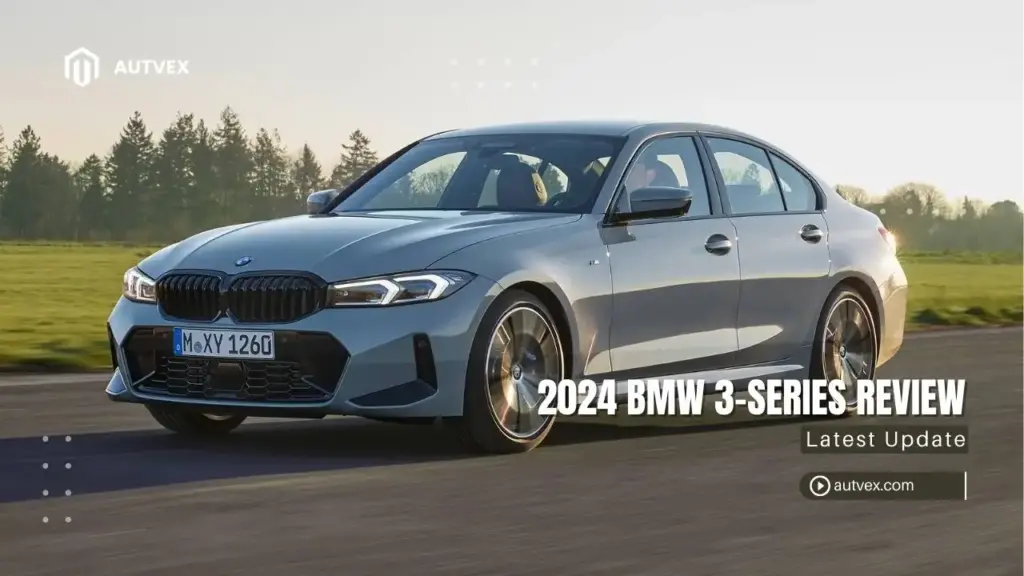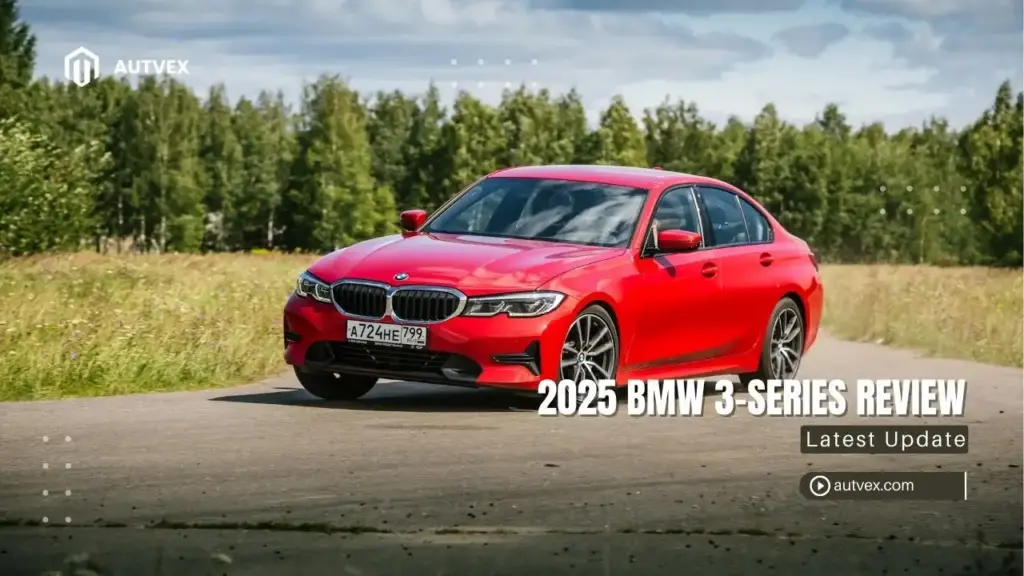You may also like:
The 2026 BMW 3-Series remains a compelling choice in the luxury compact sedan segment, delivering proven performance, advanced technology, and refined driving dynamics at a starting price of $48,675[1]. As BMW prepares for the eighth generation launch, this seventh-generation model continues to set benchmarks for athletic handling, upscale cabin quality, and fuel efficiency that rivals struggle to match[2]. For American car buyers seeking a balance of luxury, performance, and value, the 2026 3-Series presents strong arguments despite facing intensified competition from Mercedes-Benz, Genesis, and Tesla.
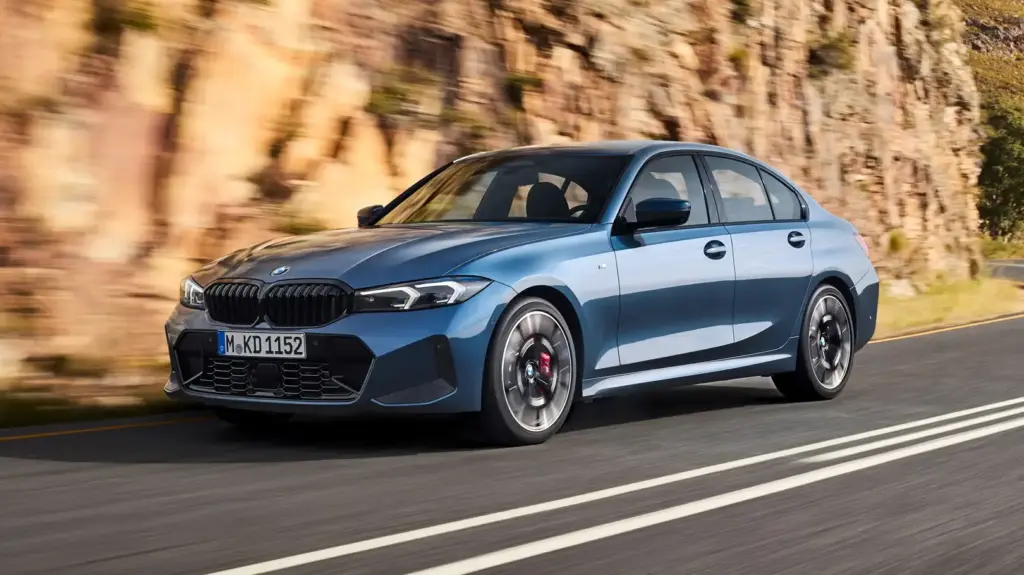
What Makes the 2026 BMW 3-Series Stand Out
Design Evolution and Modern Styling
The 2026 BMW 3-Series showcases refined seventh-generation exterior styling with sharper character lines that enhance its athletic appearance[2]. BMW’s signature kidney grilles remain prominently displayed, now paired with advanced LED headlamp technology that provides superior illumination and distinctive nighttime signature[1]. The sedan’s athletic stance demonstrates improved aerodynamic efficiency, contributing to both performance capabilities and fuel economy benefits[2].
Key design elements include:
- Sculpted hood with pronounced power bulges
- Streamlined roofline maintaining four-door practicality
- Integrated exhaust outlets enhancing rear aesthetics
- Available M Sport Package adding aggressive styling cues
Market Position and Segment Leadership
Despite minimal changes for 2026, the BMW 3-Series continues serving as the sports sedan benchmark in the luxury compact segment[2]. Independent testing confirms it outperforms direct competitors including the Mercedes-Benz C-Class and Genesis G70 in areas of driving dynamics, interior space utilization, and overall value proposition[3]. The starting price of $48,675 positions it competitively against premium alternatives while maintaining BMW’s reputation for engineering excellence[3].
Market analysts at Autvex note the 3-Series’ continued relevance stems from its ability to balance performance credentials with daily usability, making it appealing to diverse buyer demographics.
Target Buyer Profile and Use Cases
The 2026 BMW 3-Series appeals to performance enthusiasts seeking luxury compact sedan refinement without sacrificing driving engagement[4]. Daily commuters appreciate the premium technology integration and comfort features that enhance long-distance travel experiences[2]. Additionally, buyers transitioning from entry-level vehicles to the luxury segment find the 3-Series provides accessible entry into BMW ownership[3].
Primary use cases include:
- Executive transportation requiring professional appearance
- Weekend driving enthusiasts valuing handling precision
- Technology-focused buyers demanding latest connectivity features
- Safety-conscious families needing advanced driver assistance systems
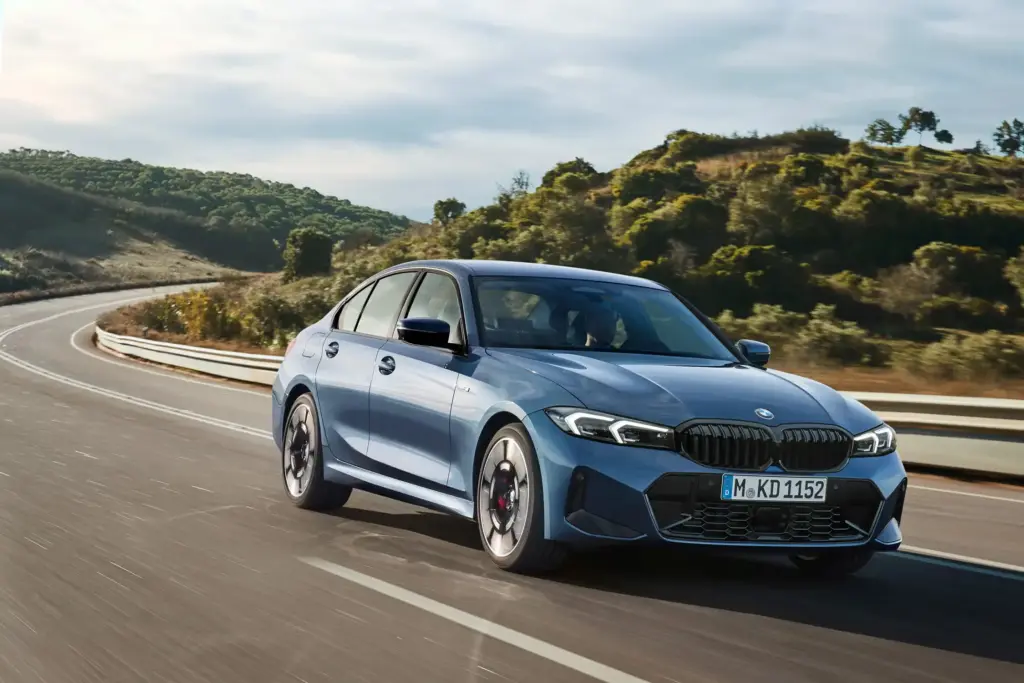
2026 BMW 3-Series Engine Performance and Specs
330i Four-Cylinder Powerplant
The base 330i utilizes a sophisticated 2.0-liter turbocharged four-cylinder engine producing 255 horsepower and 295 lb-ft of torque[1][3]. BMW’s 48-volt mild-hybrid technology enhances low-end responsiveness while improving fuel efficiency throughout the rev range[2]. Performance testing reveals 0-60 mph acceleration times of 5.2 seconds for xDrive all-wheel drive variants, providing satisfying acceleration for most driving situations[2].
330i Performance Specifications Table:
| Metric | Specification |
|---|---|
| Engine Type | 2.0L Turbocharged I4 |
| Horsepower | 255 hp @ 4,700 rpm |
| Torque | 295 lb-ft @ 1,600 rpm |
| 0-60 mph (RWD) | 5.4 seconds |
| 0-60 mph (xDrive) | 5.2 seconds |
| Top Speed | 155 mph (electronically limited) |
M340i Six-Cylinder Performance
The performance-oriented M340i features a 3.0-liter turbocharged inline-six engine generating 386 horsepower and 369 lb-ft of torque[1][3]. This powerplant delivers enhanced driving dynamics with linear power delivery throughout the rpm range[2]. Acceleration performance reaches impressive levels with 0-60 mph times of 3.7 seconds for xDrive variants, positioning it among the quickest sedans in its class[2].
The M340i’s performance advantages extend beyond straight-line acceleration, incorporating sport-tuned suspension components and enhanced braking systems for comprehensive dynamic capabilities.
Transmission and Drivetrain Options
Both engine variants pair with BMW’s refined 8-speed automatic transmission, providing smooth shifts and intelligent gear selection algorithms[2]. Rear-wheel drive comes standard across the lineup, with xDrive all-wheel drive available as an option for enhanced traction and stability in various driving conditions[2]. The xDrive system delivers enhanced traction during inclement weather while maintaining the 3-Series’ characteristic rear-biased handling dynamics[5].
Drivetrain benefits include:
- Intelligent traction management adapting to road conditions
- Sport+ mode enhancing throttle response and shift points
- Eco Pro mode optimizing efficiency during highway cruising
- Manual shift control via steering wheel-mounted paddle shifters
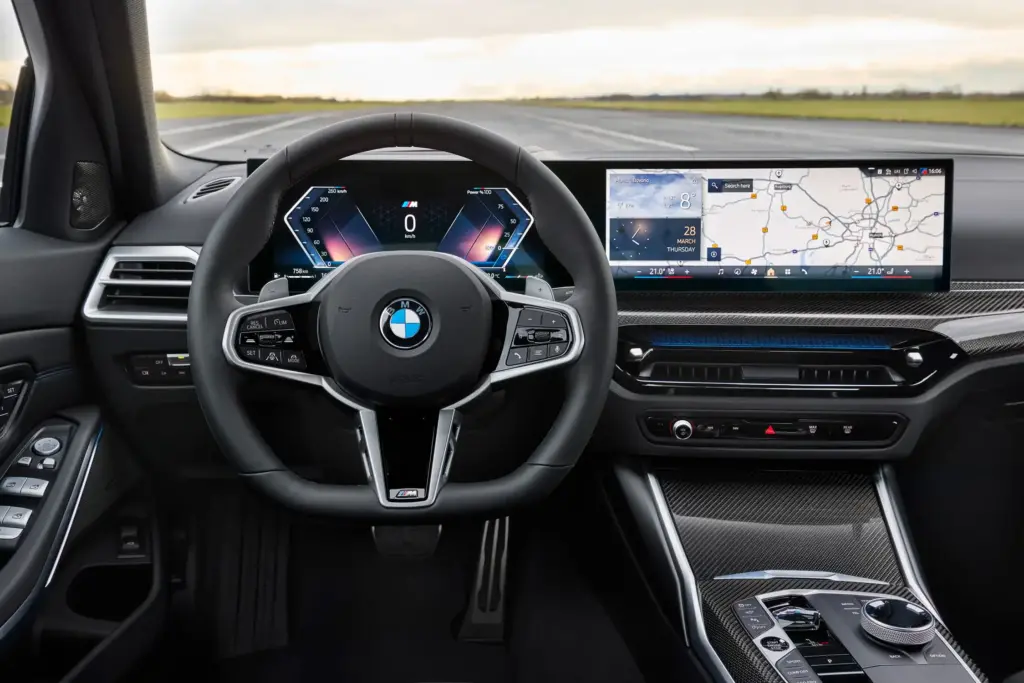
Interior Features and Technology Package
Cabin Materials and Comfort
The 2026 BMW 3-Series interior showcases premium materials throughout, with standard SensaTec leatherette upholstery providing durability and easy maintenance[3]. Optional Vernasca leather upgrades are available for $1,500, adding genuine leather surfaces and enhanced visual appeal[3]. Heated sport seats deliver excellent support and adjustability, accommodating various body types during extended driving sessions[2].
Interior comfort features extend to improved fit and finish quality, with soft-touch surfaces strategically placed throughout the cabin and enhanced sound insulation reducing road noise intrusion[2].
Infotainment and Connectivity Systems
BMW’s latest technology integration centers on a curved display setup combining a 12.3-inch digital instrument cluster with a 14.9-inch touchscreen infotainment system[1][3]. The iDrive 8.5 system provides intuitive operation with haptic feedback controls and over-the-air update capabilities[2]. Wireless Apple CarPlay and Android Auto connectivity comes standard, along with wireless smartphone charging and Wi-Fi hotspot capability[2].
Additional technology features include:
- Voice command recognition with natural language processing
- SiriusXM satellite radio with 3-month trial subscription
- BMW ConnectedDrive services integration
- Optional head-up display projecting key information onto windshield
Storage and Cargo Capacity
Trunk space measures 17 cubic feet, significantly outperforming key competitors including the Mercedes-Benz C-Class (12 cubic feet) and Genesis G70 (11 cubic feet)[1][3]. This practical advantage enhances the 3-Series’ appeal for buyers requiring substantial cargo capacity for business travel or family activities[2]. Rear seats fold to expand cargo area, accommodating larger items when needed[2].
Interior storage solutions include strategically placed cupholders, door pockets, and center console compartments designed for smartphone and personal item organization.
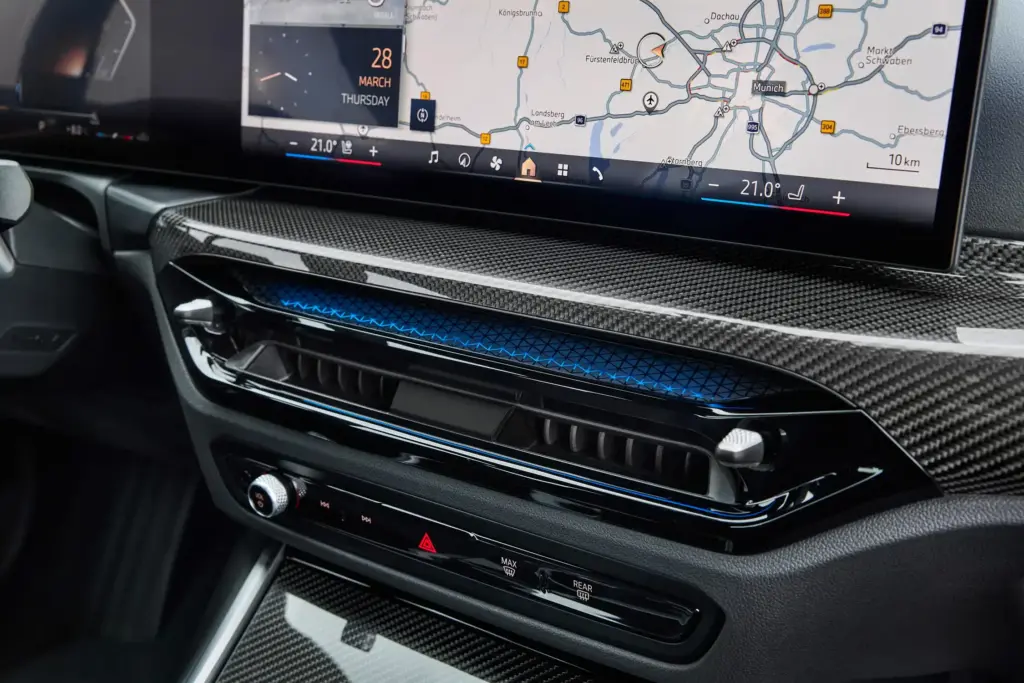
2026 BMW 3-Series Pricing and Value Analysis
Starting Prices and Trim Levels
The 2026 BMW 3-Series pricing structure begins at $48,675 for the base 330i including destination fees, representing an increase from the previous year’s $45,400 starting point[3]. M340i variants command pricing between $62,900 and $64,900 depending on drivetrain selection, with total pricing extending up to $64,875 when fully optioned[2][4].
2026 BMW 3-Series Pricing Breakdown:
| Trim Level | RWD Price | xDrive Price |
|---|---|---|
| 330i | $48,675 | $51,175 |
| M340i | $62,900 | $64,900 |
Recommended Packages and Options
BMW offers several value-oriented packages enhancing the 3-Series ownership experience. The Convenience Package ($1,100) adds heated steering wheel, power tailgate, parking sensors, and blind-spot monitoring[3]. The Premium Package ($1,950) includes head-up display, remote start capability, and additional driver assistance features[3]. The M Sport Package enables access to adaptive M suspension, providing enhanced handling capabilities for performance-focused buyers[2].
Recommended option combinations balance value and functionality, with most buyers benefiting from Convenience and Premium packages for comprehensive feature coverage.
Cost Comparison with Competitors
Value analysis reveals the BMW 3-Series offers competitive pricing against direct rivals. It undercuts the Mercedes-Benz C-Class ($49,600) and Audi A5 ($49,700) while providing superior performance and efficiency[3]. The Genesis G70 ($42,500) and Lexus IS ($41,830) offer lower entry prices but lack the 3-Series’ combination of technology, performance, and brand recognition[3].
The strong value proposition positions the 3-Series favorably in the luxury compact sedan segment, particularly when considering total cost of ownership factors including resale value and maintenance costs.
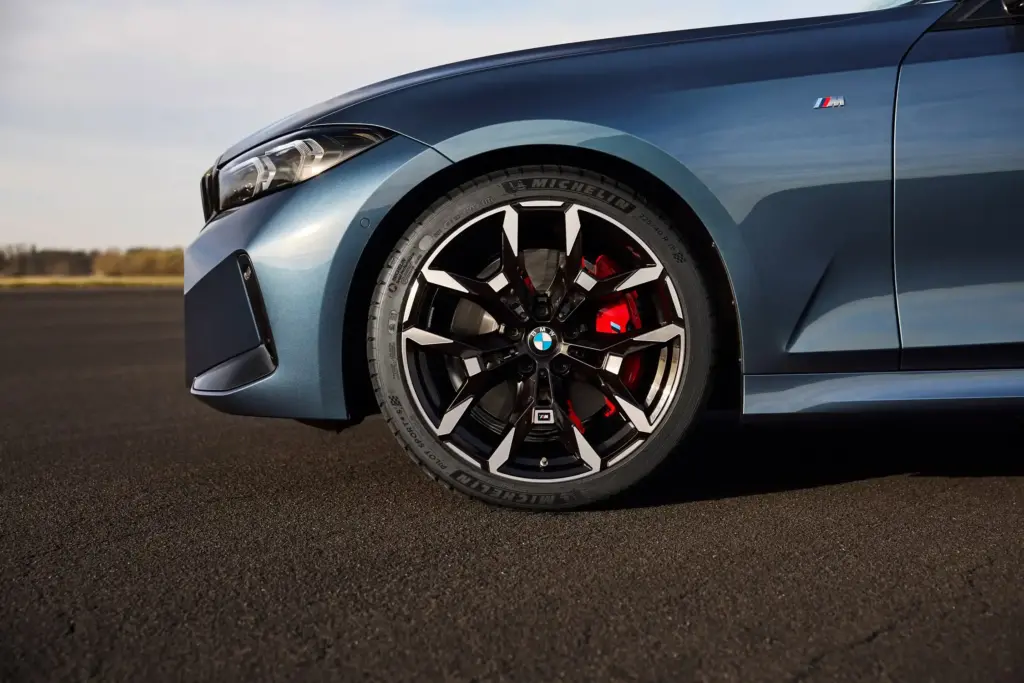
Fuel Economy and Efficiency Ratings
330i EPA Ratings and Real-World Performance
EPA testing confirms the rear-wheel drive 330i achieves 28 mpg city and 35 mpg highway ratings for a combined 31 mpg[1][3]. These figures provide efficient daily driving capabilities while maintaining performance credentials[2]. All-wheel drive xDrive models experience slightly reduced efficiency, typically 1-2 mpg lower across all categories[2].
Real-world testing by independent organizations confirms BMW’s efficiency claims align closely with actual driving conditions, providing confidence in published ratings.
M340i Performance-Efficiency Balance
Despite significant power advantages, the M340i maintains respectable fuel economy with city ratings of 26-27 mpg and highway efficiency of 33 mpg[2]. The 48-volt mild-hybrid system contributes to overall fuel economy improvements while enhancing low-speed responsiveness[2].
This performance-efficiency balance makes the M340i appealing to buyers seeking maximum power without excessive fuel consumption penalties.
Cost-Per-Mile Considerations
Premium unleaded fuel requirements increase operating costs compared to regular gasoline vehicles[5]. However, efficiency ratings remain competitive within the luxury segment, with lower fuel costs than many performance-oriented competitors[2]. Annual fuel costs typically range from $1,400-$1,800 based on average driving patterns and regional fuel pricing[6].
Consider these factors when evaluating long-term ownership costs:
- Premium fuel pricing varies significantly by region
- Driving habits significantly impact real-world fuel economy
- Hybrid system reduces fuel consumption during stop-and-go traffic
- Highway driving optimizes efficiency ratings
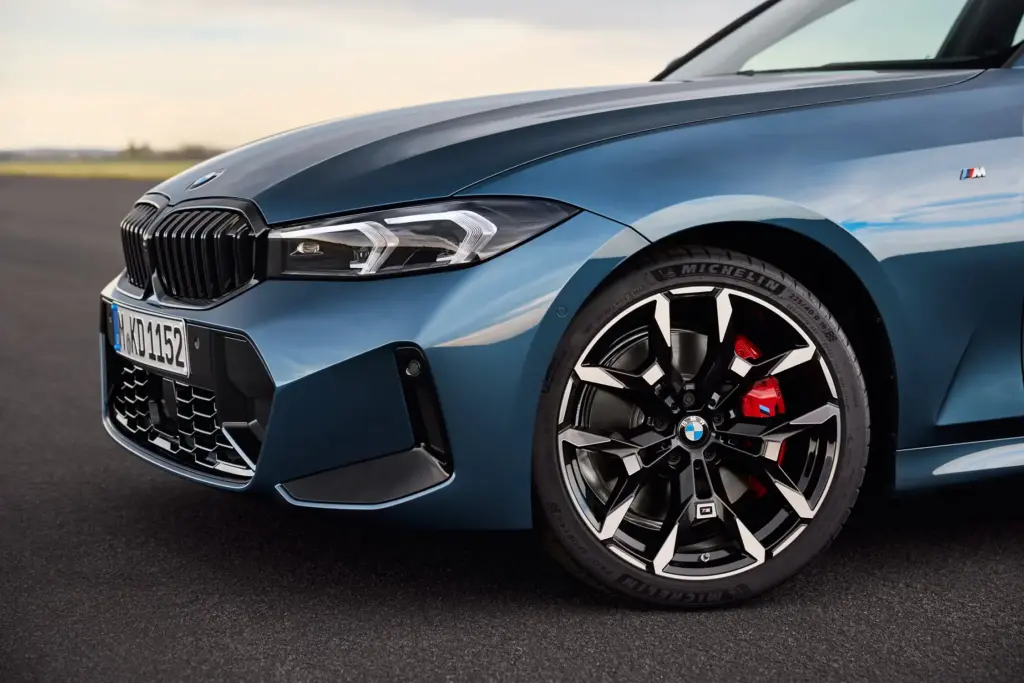
Reliability and Ownership Experience
Recent Reliability Scores and Rankings
Recent reliability assessments show the BMW 3-Series achieving a 97.5% reliability score, ranking second in the executive car class according to independent testing[7]. BMW as a brand finished eighth out of 32 manufacturers in overall reliability rankings[7]. Additionally, 96% of reported repairs were covered under BMW’s comprehensive warranty with quick resolution times[7].
These scores represent significant improvements over previous generations, indicating BMW’s commitment to quality enhancement and customer satisfaction.
Common Issues and Maintenance Concerns
Owner surveys identify infotainment system glitches as the most frequent complaint, though these issues are typically resolved through software updates[7]. Some owners report higher-than-expected servicing costs at BMW dealerships compared to non-luxury brands[7]. Occasional suspension wear and electrical system quirks appear in owner reports, though frequency remains below industry averages[8].
Preventive maintenance following BMW’s recommended service intervals helps minimize potential issues and maintains warranty coverage.
Warranty Coverage and Long-Term Protection
BMW provides comprehensive 4-year/50,000-mile warranty coverage including powertrain protection[2]. Extended warranty options are available for high-tech components, providing additional peace of mind for technology-focused buyers[9]. Roadside assistance and battery warranty coverage extend protection for hybrid system components[5].
The warranty structure compares favorably to luxury competitors while providing comprehensive coverage for potential issues during the initial ownership period.
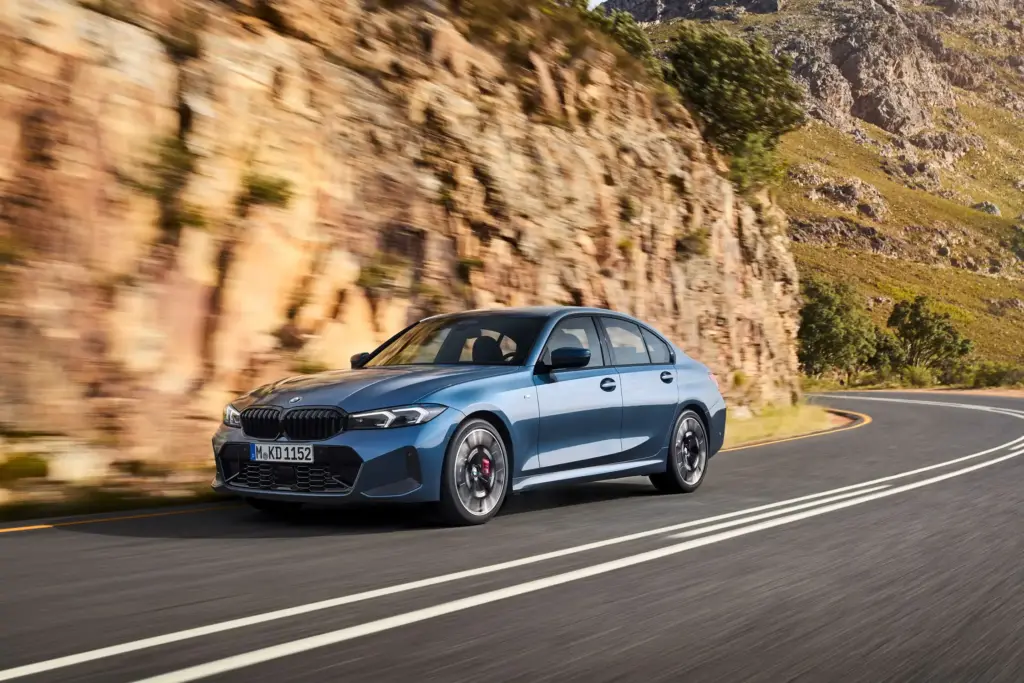
330i vs M340i: Which Trim to Choose
Performance Differences and Daily Usability
For most driving situations, the 330i provides sufficient power delivery and responsive acceleration[4][10]. The M340i delivers significantly more acceleration capability above 3,500 rpm, making it ideal for performance-focused driving[11]. The four-cylinder engine offers smoother, quieter operation during daily commuting scenarios[5].
Daily usability factors favor the 330i for most buyers, while the M340i appeals to those prioritizing maximum performance capabilities.
Cost-Benefit Analysis Between Trims
The 330i presents better value for budget-conscious buyers, providing 90% of the M340i’s capabilities at significantly lower cost[10]. The M340i justifies its premium pricing through substantial performance gains and enhanced driving dynamics[2]. Fuel economy advantages favor the 330i for buyers prioritizing efficiency during daily commuting[10].
Consider your driving priorities when choosing between trims:
- 330i: Value-focused buyers seeking luxury and efficiency
- M340i: Performance enthusiasts willing to pay for maximum capability
Feature Differences and Equipment Levels
Both trim levels share core technology and safety features, ensuring comprehensive equipment regardless of engine choice[12]. The M340i includes sport-oriented suspension tuning and enhanced braking systems as standard equipment[2]. Performance-focused buyers benefit from the six-cylinder engine’s refinement and power delivery characteristics[11].
Feature parity between trims means buyers can focus on engine performance preferences rather than equipment differences when making their selection.
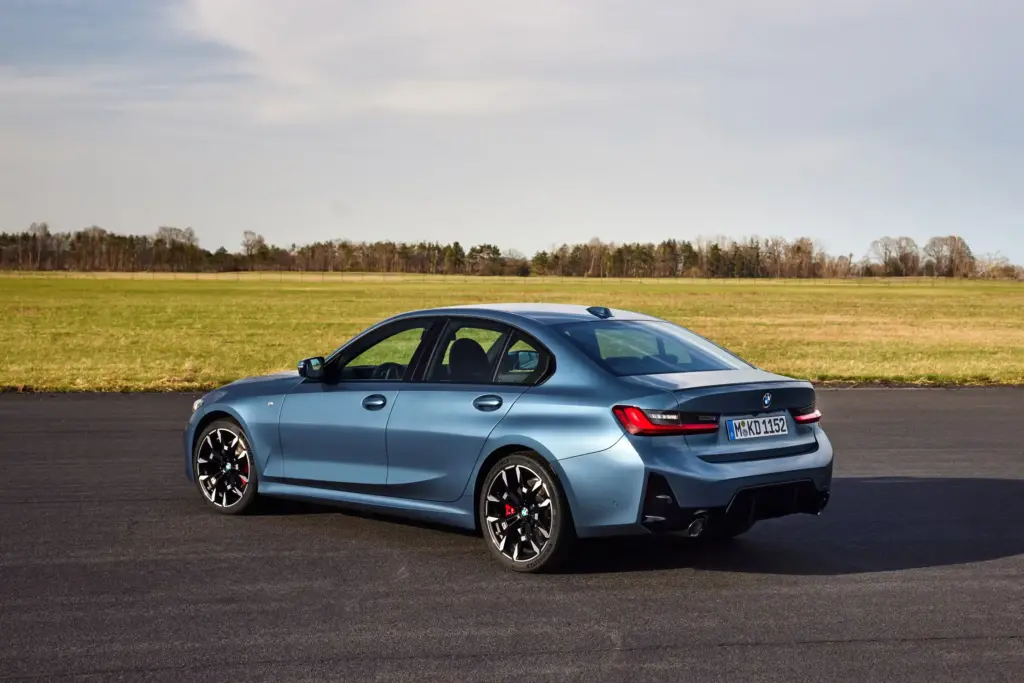
Competition and Market Comparison
Mercedes-Benz C-Class Head-to-Head
Direct comparison reveals the BMW 3-Series offers superior fuel economy (28/35 mpg vs 25/35 mpg) compared to the Mercedes-Benz C-Class[6]. BMW’s lower starting price ($48,675 vs $49,600) provides additional value while delivering comparable luxury appointments[6]. The 3-Series’ superior trunk space (17 vs 12 cubic feet) offers practical advantages for American buyers[3].
BMW maintains advantages in driving dynamics and overall value proposition, while Mercedes focuses on interior luxury and ride quality refinement.
Audi A5 and Genesis G70 Alternatives
Competitive pricing analysis shows the BMW 3-Series priced competitively against the Audi A5 at $49,700[3]. The Genesis G70 undercuts BMW’s pricing at $42,500 but lacks equivalent brand recognition and resale value protection[3]. BMW maintains clear advantages in driving dynamics, performance capabilities, and dealer network coverage[3].
Autvex automotive experts consistently rank the 3-Series ahead of these alternatives for overall value and ownership satisfaction. For more detailed comparisons, read more at Autvex about luxury sedan rankings.
Tesla Model 3 Electric Alternative
The Tesla Model 3 offers a lower starting price at $42,490 but provides a fundamentally different ownership experience[3]. Electric powertrain benefits include instant torque delivery and minimal maintenance requirements[3]. However, BMW maintains advantages in build quality, interior refinement, and charging infrastructure independence[3].
Consider electric alternatives if environmental concerns and long-term operating cost savings outweigh traditional luxury sedan benefits.
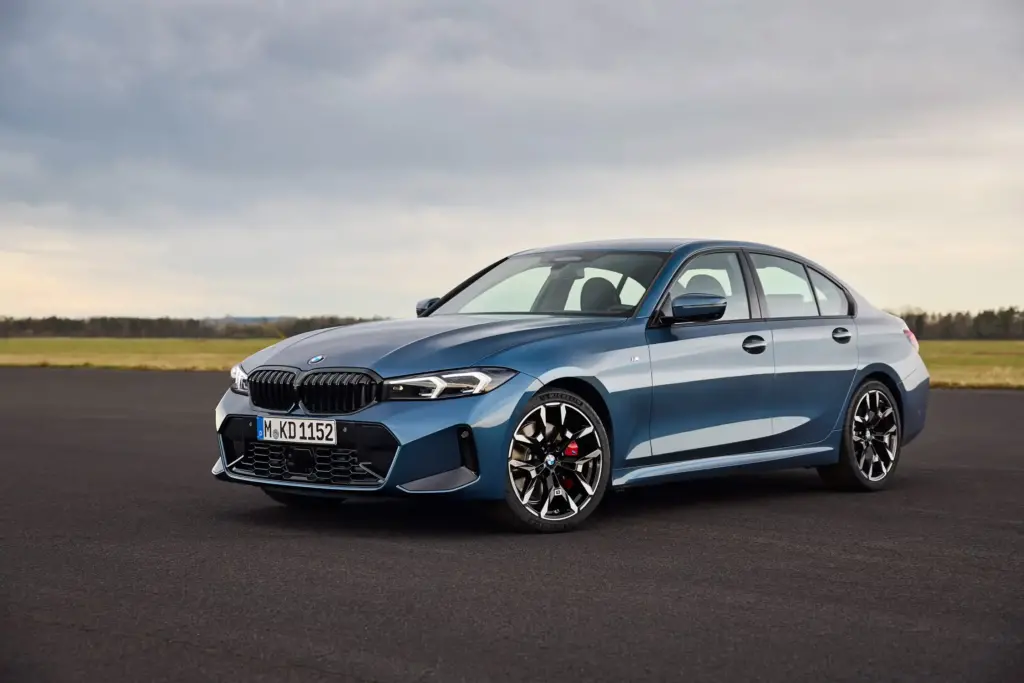
Key Takeaways
- Strong Value Proposition: Starting at $48,675, the 2026 BMW 3-Series undercuts key competitors while delivering superior performance and efficiency ratings
- Proven Powertrain Options: Both 330i and M340i engines provide reliable power delivery with 48-volt mild-hybrid technology enhancing efficiency
- Technology Leadership: Advanced iDrive 8.5 system with wireless connectivity and over-the-air updates keeps the 3-Series current with modern expectations
- Practical Advantages: 17 cubic feet of trunk space significantly exceeds Mercedes C-Class and Genesis G70 cargo capacity
- Reliability Improvements: 97.5% reliability score and comprehensive 4-year/50,000-mile warranty coverage provide ownership confidence
- Competitive Efficiency: EPA ratings of 28/35 mpg (330i) balance performance capabilities with reasonable fuel costs for luxury segment
- Trim Selection Guidance: Choose 330i for value and efficiency, M340i for maximum performance and driving engagement
FAQs
Is the 2026 BMW 3-Series worth buying over competitors?
Yes, the 2026 BMW 3-Series offers excellent value at $48,675 starting price, undercutting the Mercedes-Benz C-Class ($49,600) and Audi A5 ($49,700) while providing superior fuel economy (28/35 mpg), larger trunk space (17 cubic feet), and proven reliability scores[3][6]. The combination of performance, efficiency, and technology makes it the top choice in the luxury compact sedan segment.
How reliable is the 2026 BMW 3-Series compared to previous generations?
The 2026 3-Series shows significant reliability improvements with a 97.5% reliability score ranking second in its class[7]. BMW’s brand ranking improved to eighth out of 32 manufacturers, with 96% of repairs covered under warranty[7]. This represents substantial progress over previous generations that experienced more frequent electrical and mechanical issues.
Should I choose the 330i or M340i for daily driving?
For most daily driving scenarios, the 330i provides sufficient power (255 hp), better fuel economy (31 mpg combined), and lower cost ($48,675 vs $62,900)[1][10]. Choose the M340i only if you prioritize maximum performance (386 hp, 0-60 in 3.7 seconds) and are willing to pay the premium for enhanced driving dynamics[2].
What are the main differences between RWD and xDrive models?
RWD models offer better fuel economy (typically 1-2 mpg higher), lower purchase price ($2,500 savings), and pure rear-wheel drive handling characteristics[2]. xDrive all-wheel drive provides enhanced traction in snow and rain, improved acceleration from stops, and increased stability during adverse weather conditions[5]. Choose xDrive if you live in regions with challenging weather conditions.
How does the 2026 3-Series compare to the Mercedes C-Class?
The BMW 3-Series offers better fuel economy (28/35 vs 25/35 mpg), lower starting price ($48,675 vs $49,600), superior cargo space (17 vs 12 cubic feet), and more engaging driving dynamics[6][3]. The Mercedes C-Class focuses more on ride comfort and interior luxury materials. Most American buyers prefer the BMW’s balance of performance, efficiency, and value.
What packages and options are essential for the 2026 3-Series?
The Convenience Package ($1,100) and Premium Package ($1,950) provide the best value, adding heated steering wheel, power tailgate, head-up display, remote start, and essential driver assistance features[3]. The M Sport Package enables adaptive suspension for enhanced handling. These packages transform the base 3-Series into a well-equipped luxury sedan comparable to higher-trim competitors.
References
- Car and Driver. (2025). 2026 BMW 3-Series Review, Pricing, and Specs. https://www.caranddriver.com/bmw/3-series-2026
- BMW USA. (2025). 2026 BMW 3 Series Sedan: Model overview, features, and specs. https://www.bmwusa.com/vehicles/3-series/3-series-sedan/bmw-3-series-sedan.html
- BMW Blog. (2025). 2026 BMW 3 Series Review: Specs, Tech, MPG, and Pricing. https://www.bmwblog.com/2025/07/31/2026-bmw-3-series-review-specs-pricing/
- TrueCar. (2025). 2026 BMW 3 Series Review | Pricing, Trims & Photos. https://www.truecar.com/overview/bmw/3-series/2026/
- Driving.ca. (2025). 2026 BMW 3 Series: Price, Review, Photos and Specs. https://driving.ca/bmw/3-series/
- TrueCar. (2024). BMW 3 Series vs. Mercedes-Benz C-Class Comparison. https://www.truecar.com/compare/bmw-3-series-vs-mercedes-benz-c-class/
- What Car?. (2024). Used BMW 3 Series 2019-present reliability. https://www.whatcar.com/bmw/3-series/saloon/used-review/n20393/reliability
- Bumper. (2025). BMW 3 Series Common Problems & Reliability Guide. https://www.bumper.co/blog/bmw-3-series-reliability
- Drive Smart Auto. (2025). Extended Car Warranty for BMW 3-Series – 2026 Buyer’s Guide. https://blog.drivesmart.auto/blog/https-blog-drivesmart-auto-extended-car-warranty-for-bmw-3-series-2026-buyers-guide
- Reddit BMW Community. (2025). 2025 M340i/ 330i or wait for 2026 models. https://www.reddit.com/r/BMW/comments/1lnxfqo/2025_m340i_330i_or_wait_for_2026_models/
- BimmerPost Forum. (2024). M330i VS M340i – G20 BMW 3-Series Forum. https://g20.bimmerpost.com/forums/showthread.php?t=2071082
- BMW West Island. (2023). Comparing the 2026 BMW 3 Series 330i xDrive vs M340i xDrive. https://www.bmwwestisland.ca/new/compare/2026-BMW-3_Series-330i_xDrive-vs-2026-BMW-3_Series-M340i_xDrive.html

I am a senior automotive analyst at Autvex. Expert vehicle evaluations, in-depth reviews, and objective analysis helping readers make informed automotive decisions with years of industry experience.

